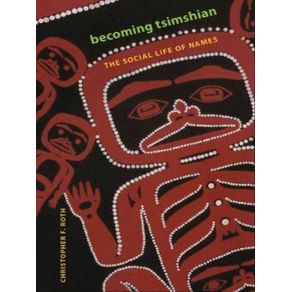The Tsimshian people of coastal British Columbia use a system of hereditary name-titles in which names are treated as objects of inheritable wealth. Human agency and social status reside in names rather than in the individuals who hold these names, and the politics of succession associated with names and name-taking rituals have been, and continue to be, at the center of Tsimshian life.Becoming Tsimshian examines the way in which names link members of a lineage to a past and to the places where that past unfolded. At traditional potlatch feasts, for example, collective social and symbolic behavior gives the person to the name. Oral histories recounted at a potlatch describe the origins of the name, of the house lineage, and of the lineages rights to territories, resources, and heraldic privileges. This ownership is renewed and recognized by successive generations, and the historical relationship to the land is remembered and recounted in the lineages chronicles, or adawx.In investigating the different dimensions of the Tsimshian naming system, Christopher F. Roth draws extensively on recent literature, archival reference, and elders in Tsimshian communities. Becoming Tsimshian, which covers important themes in linguistic and cultural anthropology and ethnic studies, will be of great value to scholars in Native American studies and Northwest Coast anthropology, as well as in linguistics.

